Most abusive relationships have fairytale beginnings. That's what makes the endings so sad. Just when you think that you found the man or woman of your dreams, everything changes.
It gets very confusing when your lover begins to mistreat you for no apparent reason.
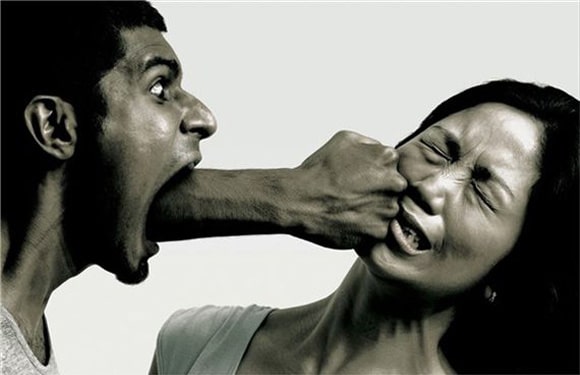 Image source: The LAMP on Flickr
Image source: The LAMP on Flickr
Abusive relationships are about power and control. They can do long term damage to your confidence. It's important that you know when you are in an emotionally abusive relationship. It is only by seeing what we have that we can learn to let go.
You may be embarrassed to admit to your family and friends that the wonderful new love interest is not so wonderful. You may blame yourself for Mr. or Ms. Right's change in attitude. Your partner may even tell you it's your fault. And as your self-esteem takes a nose-dive, the abuser turns on the heat.
If you are sad and uncertain, an intuitive reading from Psychic Elements may help.
If you question whether you are in a relationship that is abusive, get educated.
Types of Abuse
1. Physical
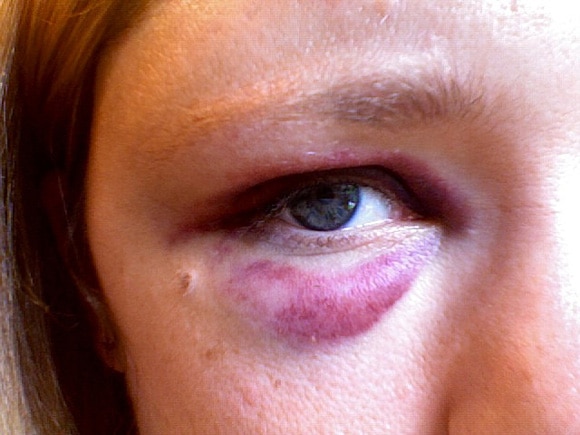 Image source: sugarsnaptastic on Flickr
Image source: sugarsnaptastic on Flickr
If your partner is hitting, pushing, or physically assaulting you in any way, it is unacceptable. There is never an excuse for violence. One incident is already too much. A pattern of physical assault and physical abuse in a relationship can batter your self-esteem as well as your body. Report the abuse. Leave the relationship.
2. Emotional
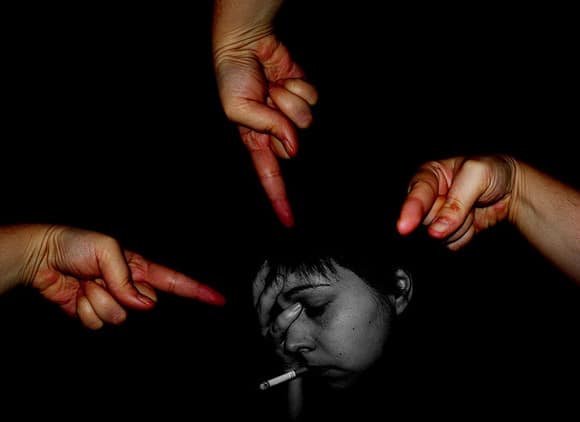 Image source: madamepsychosis on Flickr
Image source: madamepsychosis on Flickr
If your partner is isolating you from the people you love, belittling and threatening you, this is emotional abuse. Humiliation, controlling behavior, intimidation, and name calling are all signs of mental abuse.
Emotional abuse does not leave broken bones or bruises. It is easier to excuse. You may be tempted to justify it as "just words". The problem is these words can leave you damaged.
The signs of this abuse can be subtle, and it typically escalates over time. Sometimes it's hard to believe that someone who claims to love you could be abusing you.
Emotional abuse is typically verbal assault, fear tactics, and/or humiliation that damages your self-esteem. Make no mistake, this type of mental abuse can damage you as much as physical assault. Even if your partner has never done you physical harm, emotional and verbal mistreatment is still serious abuse.
3. Financial
 Image source: malloreigh on Flickr
Image source: malloreigh on Flickr
Abuse is all about control. When an abuser has total control over your finances, they limit your freedom. Financial abuse results when one partner controls all the money in a partnership. They may not allow you to work, take all the money you earn, or severely limit your access to any shared assets.
4. Sexual
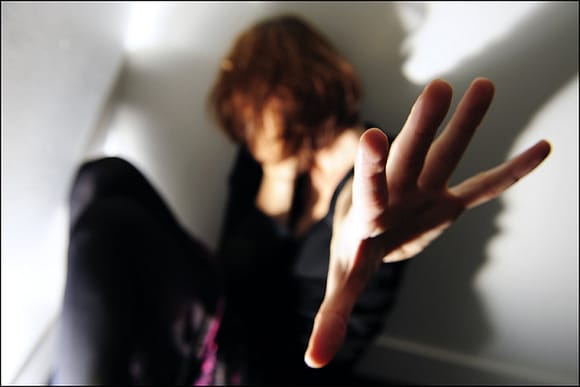 Image source: European Parliament on Flickr
Image source: European Parliament on Flickr
Sexual abuse is a physical assault that can occur in abusive relationships. Just because someone may have said yes to sex at one time does not give their partner the expectation of sexual consent at all times.
A relationship where one party is pressured into sex and is raped or degraded is by its nature abusive.
If you're in a physically or sexually abusive relationship, you may need to report it to the police. Take immediate action to stay safe. You will have to leave the relationship to stop the abuse. It usually gets worse, not better. If your partner is a sexual predator, the odds are they won't stop their abuse.
Warning Signs of Abuse
 Image source: Zorah Olivia on Flickr
Image source: Zorah Olivia on Flickr
If your partner does these things, it's abuse:
• Monitors what you're doing and where you are at all the time.
• Follows you or calls obsessively.
• Checks your phone and social media for signs you are unfaithful.
• Accuses you of cheating on a regular basis.
• Isolates you from friends or family.
• Discourages you from making friends.
• Does not want you to go anywhere without them.
• Discourages or even prevents you from working or pursuing school
• Abuses drugs or alcohol. Gets angry while under the influence.
• Controls your finances.
• Makes your decisions for you. They may decide what you are allowed to eat or wear, or even where to go.
• Humiliates and verbally assaults you in front of others.
• Calls you names.
• Destroys or hides things you care about or other property.
• Threatens you. Threatens your children or pets.
• Blames you for his or her outbursts.
• Claims that you are making them act that way.
• Threatens to harm himself/herself unless you do what they want.
• Makes threatening comments like, "If I can't have you then no one can."
• Does not allow you to express your opinions or thoughts.
• The abuse may become physical.
• They may apologize and promise they won't do it again, but behave the same way soon after the apology.
When you justify, minimize or excuse an abuser’s behavior, this can cause the problem to escalate. This is usually a conscious and deliberate pattern of behavior. The abuser has a need for power and control. They may appear angry and out of control. The more afraid you become, the more control they get.
These control and manipulation tactics are usually formed in the abuser's childhood. They can pick them up from role models, the family of origin, or peers. By the time the abuser is an adult, they have ingrained abusive and manipulative behaviors. He/she may not understand why they are doing this, but it is impossible to stop.
You may:
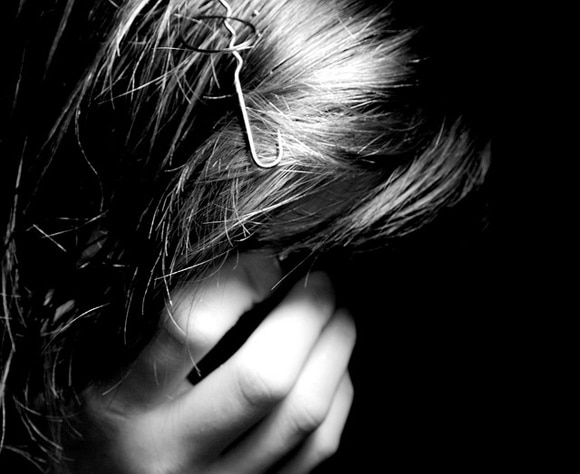 Image source: Majicdolphin on Flickr
Image source: Majicdolphin on Flickr
• Become confused and depressed.
• Wonder if you're being abused.
• Begin to believe it's your fault.
• Give the abuser many chances to change.
• Make excuses for the abusive partner.
• Minimize or justify the abuse.
• Develop serious health and stress-related issues.
• Become afraid to say anything in case it makes the abuser angry.
• Use drugs or alcohol to cope with the abuse.
• Notice that your self-esteem is slipping.
• You begin to question what you are doing wrong.
• Victims of abuse often blame themselves.
Experiencing emotional abuse can lead to serious health issues, including mental and emotional problems, post-traumatic stress disorder (PTSD), depression, and anxiety.
Some abused women self-medicate with drugs, alcohol or overeating. This can lead to even worse physical, mental and emotional problems.
The abuser has the power in the relationship. Do not excuse or dismiss abusive behavior. It is very common for abusers to lead victims to believe that the abuse is the victims’ fault. Someone that is threatening, aggressive or manipulative towards you is never your fault.
Even after you leave an abusive relationship, there may be residual damage.
 Image source: Willem van de Kerkhof on Flickr
Image source: Willem van de Kerkhof on Flickr
You need to develop a support system and reconnect to friends and family. It may also be a good idea to find a counselor or a mental health professional. You may need to work on your self-esteem. Also, look for healthy ways to empower yourself and reduce your stress. Try exercise and meditation. Be good to yourself and surround yourself with positive energy.

